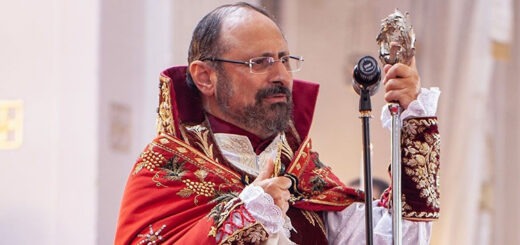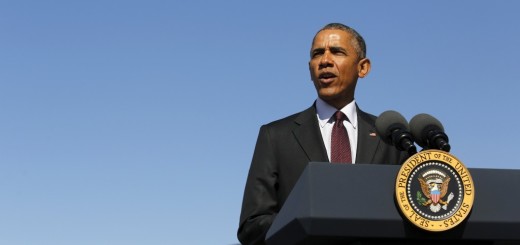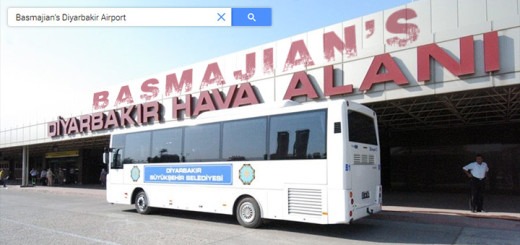Pan-Armenian Council to Supersede Armenian Genocide Centennial Committee
The Armenian Genocide Centennial State Committee unanimously adopted a resolution on September 26 in Yerevan to form a Pan-Armenian Council. Also present were representatives of Armenian Genocide Centennial Committees (AGCC) from 40 countries, with the exception of the AGCC’s of the Eastern and Western United States.
An Organizing Committee was formed composed of 12 individuals: Gagik Harutyunyan, President of the Constitutional Court of Armenia; Vigen Sargsyan, Armenian President’s Chief of Staff; Hranoush Hakobyan, Armenia’s Diaspora Minister; and representatives of the Holy See of Etchmiadzin, Holy See of the Great House of Cilicia, Armenian Catholic Church; Armenian Evangelical Church, Armenian Revolutionary Federation, Armenian Democratic League, Social Democratic Hunchakian Party, Union of Russian Armenians, and Armenian General Benevolent Union.
Possibly due to oversight, the Organizing Committee did not include a representative of the Republic of Artsakh (Nagorno Karabagh). However, the adopted resolution clearly stated that the Pan-Armenian Council would include representatives of the Republic of Armenia, Republic of Artsakh, major Diasporan organizations, key Armenian state agencies, religious institutions, civil society, and political parties.
The resolution directed that:
— The Pan-Armenian Council be of advisory nature, have geographic and thematic committees, and meet annually in Yerevan;
— The Council include on its permanent agenda the following items: a) review of a comprehensive annual report on conditions of Armenians around the world, b) discussion on the recognition, condemnation and elimination of the consequences of the Armenian Genocide, and c) coordination of pan-Armenian activities;
— The Council hold its inaugural session in Yerevan on September 20, 2016;
— The Organizing Committee prepare and send to members of the State Committee and regional AGCC’s by April 15, 2016, a preliminary outline of the structure and composition of the Pan-Armenian Council; hold consultations on the direction, format and activities of the Council; plan the inaugural session of the Council; and by July 15, 2016 inform State Committee members of its date and place;
— The Diaspora Minister prepare the first report of “Conditions of Armenians Around the World,” in consultation with the Ministries of Foreign Affairs, Culture, Education and Science, state agencies, and Diasporan organizations, including the State Committee and regional AGCC’s; present by May 1, 2016, a preliminary report to the State Committee and regional AGCC’s seeking their proposals; hold consultations with regional AGCC’s to prepare proposals regarding their relationship with the Pan-Armenian Council; and finalize the report by the Sept. 20th session of the Council.
During the discussion, Hrant Markarian, Chairman of the Bureau of the Armenian Revolutionary Federation, suggested that, in addition to the Pan-Armenian Council, regional councils be formed in various parts of the Diaspora to help organize in 2016, the 25th anniversary of the independence of the Armenian Republic, and in 2018, the 100th anniversary of the founding of the first Republic of Armenia.
I took the floor next asking why the Pan-Armenian Council did not include representatives of the public-at-large, to ensure that the majority of Armenians, who are not members of any Armenian organization, are represented in the Council. The President of Armenia, Serzh Sargsyan, responded that his staff had explored such a possibility, but had given up due to the difficulty of selecting representatives from the Armenian Diaspora. I mentioned that there are mechanisms for selecting representatives from the various Armenian communities. The President welcomed the suggestion and referred it to the Organizing Committee. President of the Constitutional Court Gagik Harutyunyan and former Prime Minister Vazken Manoukian also commented on the possible inclusion of representatives from the general public in the Pan-Armenian Council.
As I have explained in previous columns, the Pan-Armenian Council would eliminate the need to form separate committees on the occasion of each Armenian crisis or issue. In my view, it would be preferable that Diasporan members of the Council be selected through democratic elections held in various Armenian communities around the world — a very difficult, yet rewarding task, if implemented successfully!
Finally, there was no discussion at the September 26 meeting on the role of the Diaspora Ministry after the Pan-Armenian Council is formed. This would be an important issue for the Organizing Committee to consider in its upcoming deliberations.







